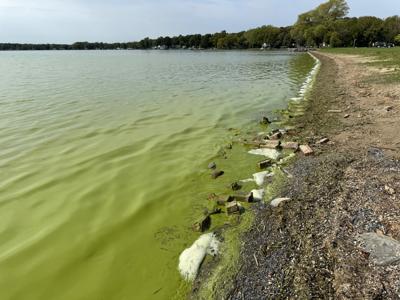In another major legal victory for local stakeholders, a state Supreme Court judge has ruled the state Department of Health must work with the city of Auburn and town of Owasco to update the Owasco Lake watershed rules and regulations.
Judge Keri Savona's decision states that a July 2024 letter from the department to Auburn Mayor Jimmy Giannettino and Owasco Supervisor was a final agency determination that the stripped the petitioners — the city of Auburn, town of Owasco and Owasco Watershed Lake Association — "of any ability to protect their residents from a scentifically established threat."
Savona continued, "DOH's determination was contrary to all relevatnt science, all state-funded studies, and was made arbitrarily and capriciously. DOH is hereby directed to work collaboratively with the petitioners to draft updated watershed rules and regulations that address the very real problem of nutrient pollution caused by agricultural practices."
People are also reading…
The decision was in response to a second lawsuit filed by the city, town and OWLA over the department's handling of watershed rules and regulations. Savona has already sided with the city and town in a separate lawsuit. In that ruling, the judge said the department erred when it determined it could not regulate nutrient runoff from farms — a contributing factor in the development of harmful algal blooms.
The state is appealing Savona's decision in the first case.
Auburn, Owasco and OWLA began its legal fight after a series of actions by the state Department of Health.

A large harmful algal bloom makes its way to the northern shore of Owasco Lake around Deauville Island at Emerson Park in September 2024.
After toxins from harmful algal blooms were found in the drinking water supply in 2016, local stakeholders worked with the state to develop updated watershed rules and regulations. The proposed amendments were submitted in 2020.
When the state Department of Health responded with its own proposal in 2023, it excluded the nutrient management changes suggested by the local stakeholders. Auburn Mayor Jimmy Giannettino, who was a city councilor at the time, said the state "has failed us."
The first lawsuit, which was in response to the department's proposal, was filed in January 2024. Earthjustice, an environmental group, is representing the city, town and OWLA.
In July 2024, the state Department of Health changed course and said it would not update the Owasco Lake watershed rules. In the aforementioned letter to Giannettino and Wagner, a state official notifed them that the department "determined that amendments are not necessary to ensure potable water quality for the foreseeable future." The department committed to continue working with the municipalities and state agencies on "other critical efforts to protect Owasco Lake against the damaging effects of climate change."
The city, town and OWLA responded by filing their second lawsuit late last year.
Earthjustice and local leaders celebrated Savona's latest decision in their favor. Michael Youhana, the Earthjustice attorney who is represented the municipalities and OWLA, said in a statement that the state "has a duty to protect drinking water and must work with local communities, not against them, to stop pollution from contaminating Owasco Lake."
Giannettino added, "The judge's decision points to scientific proof that our water quality continues to be degraded while state agencies have abdicated their responsibilities. I call on (Gov. Kathy Hochul) to direct her agency heads to take real and immediate action."
Owasco Supervisor Ed Wagner said the decision "reaffirms what science and common sense have long told us: We must address nutrient pollution to safeguard Owasco Lake and the health of those who depend on it."Â
The state has highlighted its efforts to protect Owasco Lake, including more than $9 million for water quality projects in the watershed. Shortly after Savona's first decision in May, Hochul's office issued a announcing the disbursement of $42 million to the Eastern Finger Lakes Coalition for water quality improvement projects.
Savona acknowledged the state's investments and work to combat harmful algal blooms. It is why, as she wrote in her decision, she is confused about "why the DOH is donning proverbial blinders and refusing to acknowledge a fact that their own science proves."
"Their behavior is, frankly, the definition of arbitrary and capricious," Savona wrote. "The respondents attempt to paint a picture that the petitioners are being unreasonable in attempting to force DOH to adopt their proposed amendments. This is an unsuccessful, blame-shifting mischaracterization."
Government reporter Robert Harding can be reached at (315) 664-4631 or robert.harding@lee.net. Follow him on X @RobertHarding.














